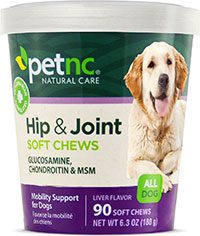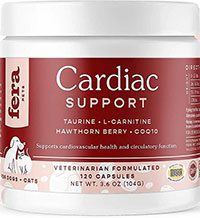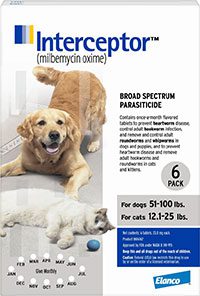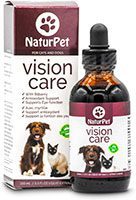Whether your senior pet has been with you since puppy or kittenhood or joined your family later in life, they undoubtedly have a special place in your heart. Senior pets will experience mental and physical changes and are at higher risk for developing certain medical conditions. For this reason, routine wellness care and laboratory tests are extremely important in pets over seven years of age.
When are dogs or cats considered seniors?
For general purposes, many vets consider animals over the age of seven to be seniors but it does vary by breed and species. According to a rough guide by the American Veterinary Medical Association, here are the ages when a pet is considered senior:
- Cats: 10 years
- Small or toy breeds (less than 20 pounds): 8 to 11 years
- Medium-sized breeds (20 to 50 pounds): 8 to 10 years
- Large breeds (50 to 90 pounds): 8 to 9 years
- Giant breeds (more than 90 pounds): 6 to 7 years
How can aging affect my pets?
As your pet ages, you may notice changes in their body condition, including a dull fur coat, cloudy eyes and loss of muscle. They may sleep more, play less and have accidents in the house. You may also see a decline in mobility, vision, hearing and cognitive ability. Stiff and painful joints ARE a part of getting older, but your vet can help —your pets don’t have to suffer discomfort.
Aside from physical changes, they have a higher chance of developing illnesses that require additional care such as dental disease, arthritis, kidney disease, and sadly, sometimes even cancer.
What can I do to help my senior pet comfortable?
While signs of aging are unavoidable, there are many ways that you can help keep your senior pet happy and healthy for as long as possible.
Here are the top recommendations by a licensed veterinarian on how you can keep up your senior pet’s wellness care, through veterinary and at-home solutions.
1. Take them for a physical exam twice a year
For a healthy senior pet (generally 7+ years of age), twice-yearly vet visits are recommended. If you have concerns about your pet’s health or if they have been diagnosed with a chronic medical condition, they will need to be seen more frequently.
Since our fur babies can’t speak, your vet will rely on a thorough history from you, a nose-to-tail physical exam, data (their weight, temperature, heart rate, respiratory rate) and any indicated diagnostic tests to assess your pet’s health. Frequent vet visits aim to catch any issues early when they may be easier to treat or manage.
Additional focus during a senior pet exam may include discussion of pain management for arthritis, changes to hearing, vision and cognitive decline; dental disease and other conditions such as diabetes, kidney disease, heart disease and cancer that can commonly affect our senior pets.
Several veterinary practices offer at-home vet services so your pet can be examined within the comfort of their own home.
2. Keep up with their vaccinations and preventatives
Prevention is always better than cure. As your pet ages, they become more susceptible to common illnesses.
The vaccines recommended for senior pets may vary based on lifestyle and risk of exposure. Many vaccines are due every three years; however, some are due yearly. If your senior pet has never been vaccinated before, they will need some additional booster shots to ensure an appropriate immune response.
Meanwhile, year-round flea, heartworm and intestinal parasite prevention is beneficial for most animals. If your pet has a flea allergy, goes outdoors frequently or lives with young children or immunocompromised individuals, this is especially important. There are many different brands and preparations of parasite prevention available, including oral, topical and injectable products that protect against one type or many types of external and internal parasites. A heartworm test and refill of these preventatives is generally recommended once a year.
3. Take them for laboratory tests that can help evaluate their overall health
Aside from the routine wellness care, vets may recommend laboratory tests such as bloodwork, urinalysis and fecal testing to help evaluate your senior pet’s overall systemic health and determine their baseline values. X-rays and ultrasounds may also provide insight into their health and any changes. Further testing will be recommended based on your pet’s physical exam and health history.
4. Improve their diet at home and monitor their weight
Wellness care for senior pets doesn’t only rely on veterinary care—it also comes from the home. Adjusting their diet is one of the ways you can contribute to your senior pet’s overall health. Some senior pets may continue to do well on their normal diet; however, others may benefit from a diet tailored to seniors, which may be easier to digest and is formulated to meet their unique protein and metabolic requirements.
It is important to monitor your senior pet’s weight and body condition. Especially as they become less active, it is important to remember that food is not love. Obesity may predispose your pet to additional joint and health concerns; weight loss may be a sign of a significant underlying issue. If your pet has a chronic condition, such as kidney disease, your vet may recommend a prescription veterinary diet as part of their treatment plan.
5.Give your pet mobility and enrichment
Arthritis, mobility issues and cognitive dysfunction affect many senior pets. Arthritis can be managed through a multimodal approach, including pain medications, supplements, physical therapy, appropriate exercise and alternative medicine. You can also make changes to your home environment to make it more accessible for your senior pet, such as putting a stool in front of the couch for them to jump up on and providing extra traction throughout the house.
For pets who suffer from changes with their hearing and vision, it is important to continue to provide appropriate mental and physical stimulation. This may include gentle walks, play, training and interactive feeding or puzzle toys.
6. Let them leave the world with dignity and without suffering
It can be extremely difficult to watch a beloved pet decline. No matter how well you care for your fur baby, end-of-life care is something we all have to face. The decision of when to say goodbye is a difficult and personal one but we always have the choice to make their path to goodbye pain-free through humane euthanasia. Quality of Life Scales, such as the one from Lap of Love (a home euthanasia service), can be extremely helpful.
Recap
If you have any concerns about your senior pet’s condition or quality of life, your veterinary team is ready to help. Home visits from a hospice-trained veterinarian can provide insight into comfort care steps that may help within the home. Whether your primary veterinarian is a mobile service or a clinic, hospice veterinarians can be a great supplement to work with your existing team to give exceptional care. In-home, your veterinarian will be able to observe your pet's normal actions and identify struggles, as well as walk you through the quality of life scoring sheets and focus on your comfort as caregivers, as well as your pet’s mental and physical comfort.







